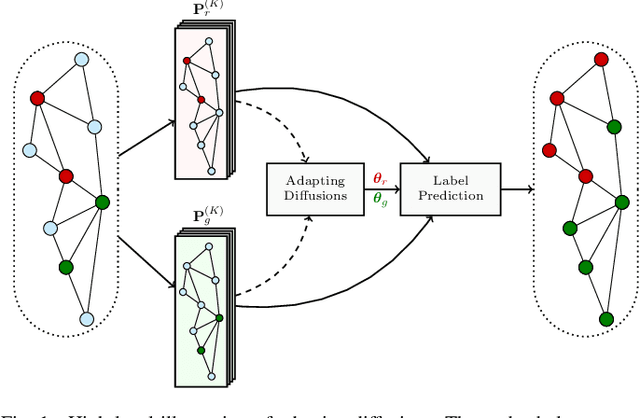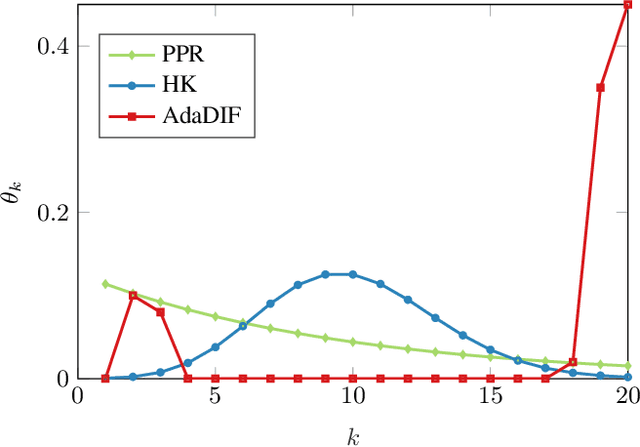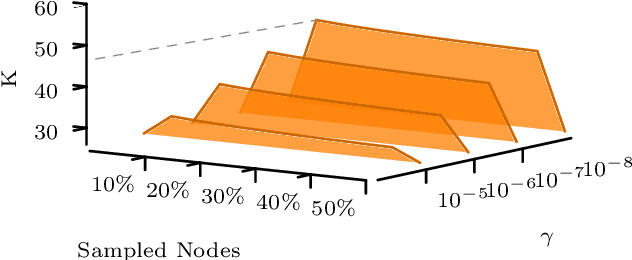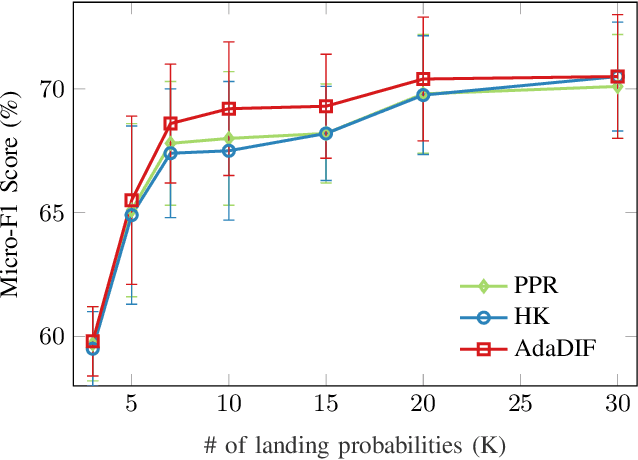Adaptive Diffusions for Scalable Learning over Graphs
Paper and Code
Sep 05, 2018



Diffusion-based classifiers such as those relying on the Personalized PageRank and the Heat kernel, enjoy remarkable classification accuracy at modest computational requirements. Their performance however is affected by the extent to which the chosen diffusion captures a typically unknown label propagation mechanism, that can be specific to the underlying graph, and potentially different for each class. The present work introduces a disciplined, data-efficient approach to learning class-specific diffusion functions adapted to the underlying network topology. The novel learning approach leverages the notion of "landing probabilities" of class-specific random walks, which can be computed efficiently, thereby ensuring scalability to large graphs. This is supported by rigorous analysis of the properties of the model as well as the proposed algorithms. Furthermore, a robust version of the classifier facilitates learning even in noisy environments. Classification tests on real networks demonstrate that adapting the diffusion function to the given graph and observed labels, significantly improves the performance over fixed diffusions; reaching -- and many times surpassing -- the classification accuracy of computationally heavier state-of-the-art competing methods, that rely on node embeddings and deep neural networks.
 Add to Chrome
Add to Chrome Add to Firefox
Add to Firefox Add to Edge
Add to Edge